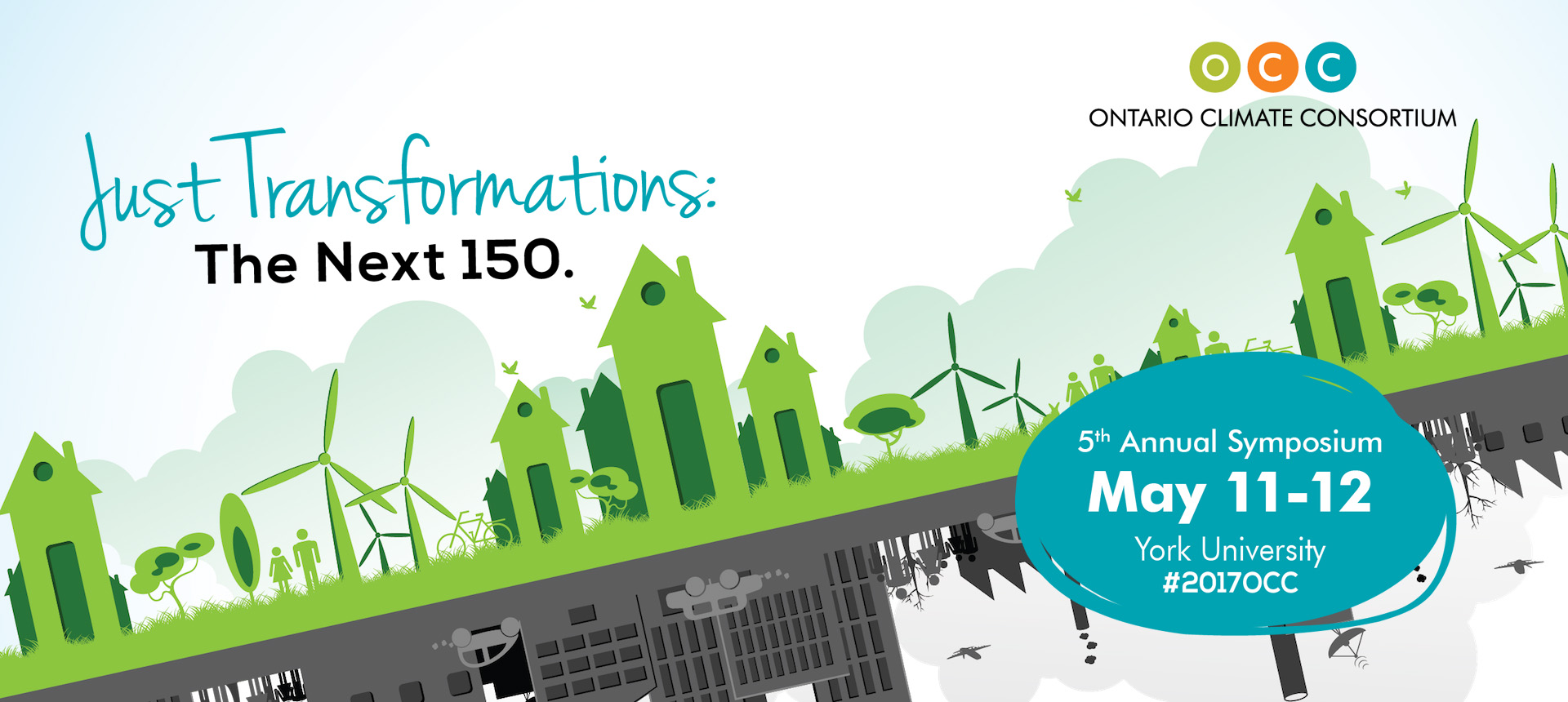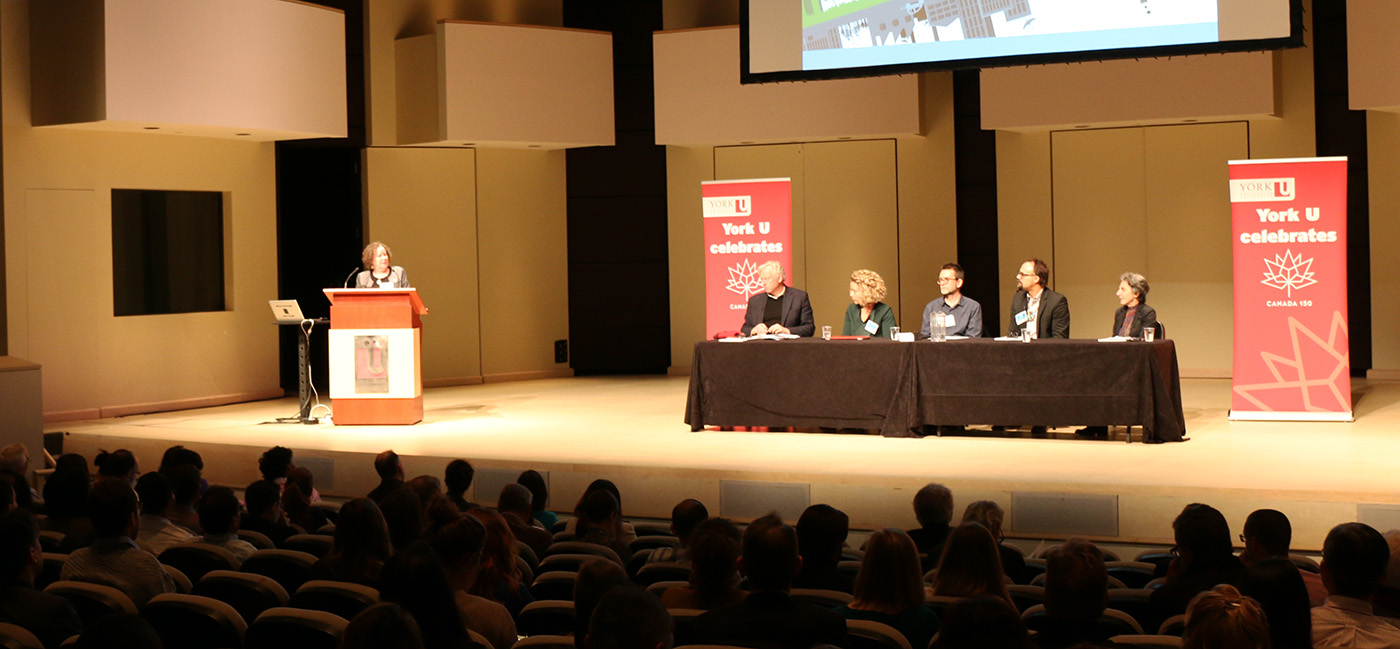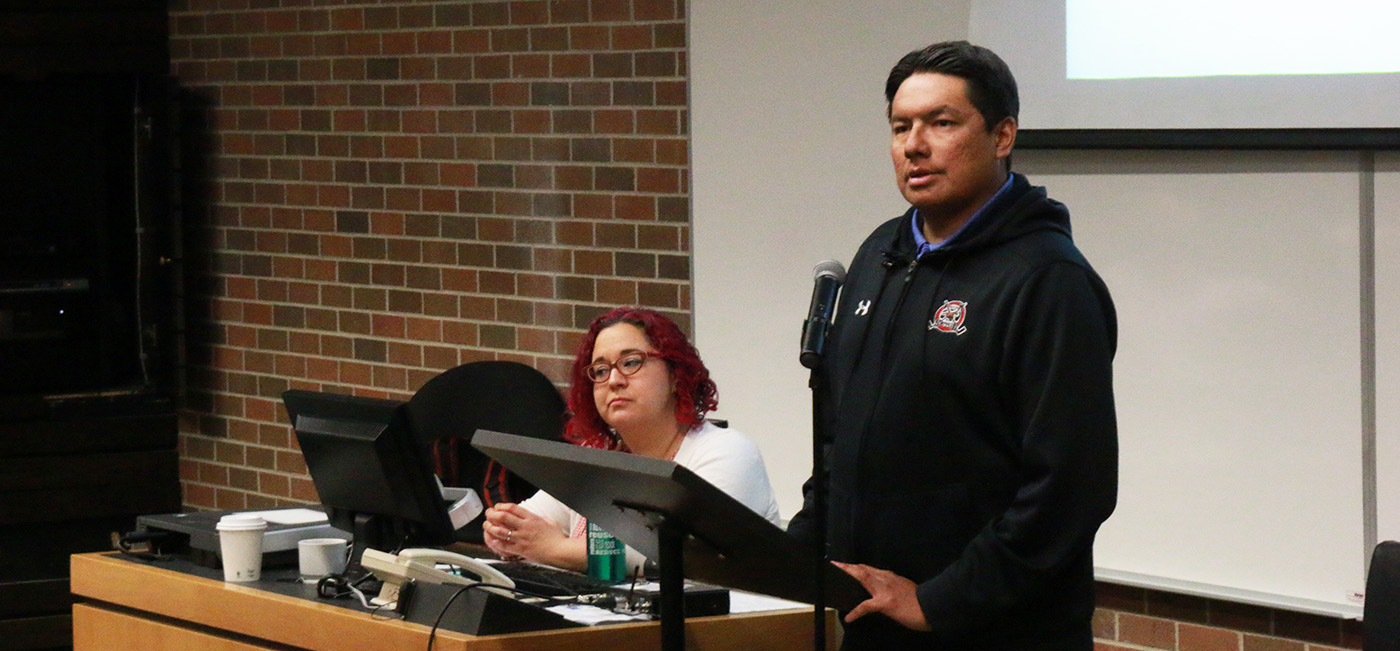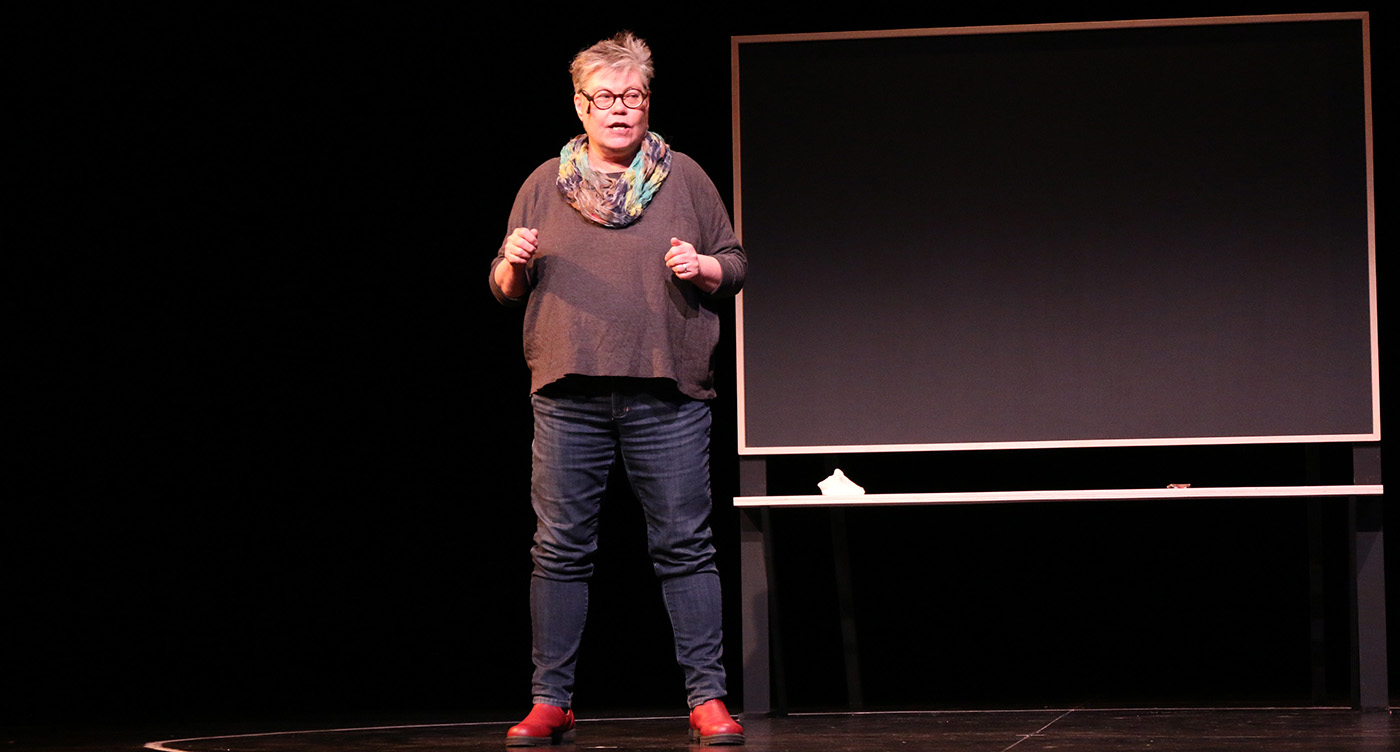
THE 2017 ONTARIO CLIMATE SYMPOSIUM
In May 2017, the Ontario Climate Consortium (OCC) co-hosted its 5th Annual Ontario Climate Symposium with York University and the Toronto and Region Conservation Authority. The symposium is the premier forum for sharing cutting-edge research and initiatives that address climate change in the province.
The aim of the 2017 Ontario Climate Symposium: to facilitate discussions across research disciplines, as well as policy and practice communities, about Ontario’s future as we collectively address climate change through mitigation and adaptation strategies.

We are mindful the “future” is usually conceptualized in decades – 2030 or 2050 – or at most as “end of the century” in climate change policy discussions. From many indigenous/aboriginal perspectives, however, the collective responsibility we bear for ensuring the well-being of the Earth and its communities (both human and non-human) applies to at least seven generations into the future.
Inherent to this responsibility is the importance of caring for marginalized and vulnerable communities and sharing fairly the benefits of our transition towards a more sustainable society. This perspective informed the symposium throughout the program.

Given that Canada is celebrating the 150th anniversary of confederation in 2017, we also encouraged discussions of what Ontario could be like in the next 150 years, or in seven generations, when Canada will celebrate the 300th anniversary of Confederation.
Within the overarching themes described above, we organized the program around a set of sub-themes, including energy, climate justice, planning and implementation, eco-health, climate data, and the performing arts.

SUMMING UP
This year’s symposium, centered on the theme of Just Transformations: The Next 150, brought together speakers and attendees from academia, all levels of government, the private sector, and civil society organizations to discuss pathways towards low-carbon and climate-resilient communities over the next century and beyond.
The Keynote Panel on May 11 included speakers presenting on a number of overarching themes related to climate justice, including energy justice, indigenous perspectives, citizen engagement and community transformation. It featured perspectives from Ontario and beyond on topics such as the implementation of the Pan-Canadian Framework on Climate Change, and the implications of the Trump administration for climate policy in the United States.
On May 12, the symposium featured concurrent panel sessions exploring a wide-ranging array of topics, including sustainable energy, climate justice, the future of the water system, community mobilization, the transportation sector and indigenous perspectives:
- Workstream A explored questions related to the implementation of sustainable energy at the local level, the future of energy systems, frameworks for energy storage technologies, and the future of energy efficiency in Ontario.
- Workstream B explored topics related to climate justice, including recent developments in climate change litigation and advocacy, the connection between climate change and marginalized communities, industrial chemical effects on indigenous communities, environmental racism, gender equity in the renewable energy industry, energy literacy and approaches to energy conservation.
- Workstream C focused on planning and implementation, addressing topics such as the planning challenges related to climate change, low-income communities, cap and trade, the importance of retrofitting social housing, the potential of smart grids, the moral implications of flood risk measurement, strategies for measuring emissions reduction successes and methods for evaluating sustainability.
- Workstream D examined ecohealth and the future of the water system, with discussions related to flood impact and the engineering challenges of heavy rainfall, animal habitats, new stormwater policies, mitigation of public health risks, the ecological determinants of health, and the role of greenspace in addressing health and air pollution.
- Workstream E examined the impact of climate change on First Nations communities in Ontario, the challenges of coordinating community-level action on climate change, and the future of the transportation sector, with a specific focus on supply chain transportation, public transit and the emerging concept of microtransit.
PRESENTED BY |
||||||
 |
 |
 |
||||
OUR SUPPORTERS |
||
| – Event Sponsors – | ||||||
 |
 |
 |
 |
||||
| – Event Supporters – |
 |
 |
 |
||||
| – Media Partners – |
| – Event Hosts – |
 |
 |
|||
Acknowledgements
PROCEEDINGS REPORT
We would like to thank Victor Bruzzone from York University for his work in compiling this proceedings report for the 2017 Ontario Climate Symposium.
VOLUNTEERS
We would like to acknowledge the volunteers whose efforts helped to make this event possible:
|
|
|
||
|
|
|
||
|
|
|
||
|
|
|
||
|
|
|
||
|
|
|
||
|
|
|
||
|
|
|||
|
|
